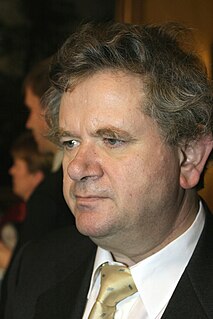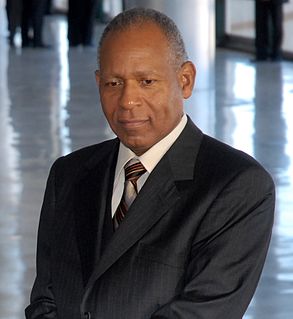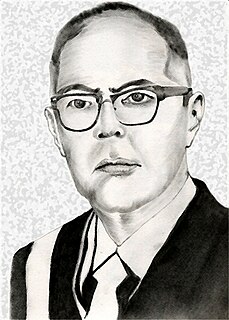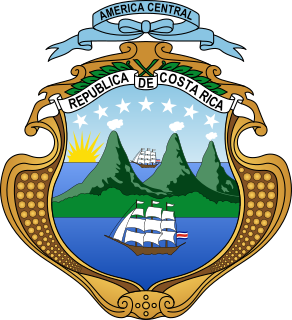
General elections were held in the Netherlands on 3 May 1994. The Labour Party emerged as the largest party, winning 37 of the 150 seats in the House of Representatives. The election resulted in significant losses for both the Labour Party and the Christian Democratic Appeal. The two liberal parties, People's Party for Freedom and Democracy and Democrats 66 made large gains, whilst two pro-elderly parties and the Socialist Party all passed the electoral threshold to win seats.

The National Alliance for Reconstruction (NAR) was the governing party in Trinidad and Tobago between 1986 and 1991. The party has been inactive since 2005.
The Saint Kitts and Nevis Labour Party (SKNLP) is a centre-left political party in Saint Kitts and Nevis. It is currently in opposition in the country after winning two of the eleven seats in the 2020 general election. It is the oldest active political party in the English-speaking Caribbean.
The Democratic Party is a centre-right political party in Bulgaria led by Alexander Pramatarski. The party was a member of the European People's Party (EPP).

General elections were held in Haiti in 1995. The presidential election, held on 17 December, resulted in a victory for René Préval of Fanmi Lavalas. The parliamentary elections, held on 25 June, 13 August and 17 September, were also won by Lavalas. Voter turnout was just 31.09% for the parliamentary elections and 27.8% for the presidential elections.

Parliamentary elections were held in Iceland on 8 April 1995. They were the first elections after the Althing became a unicameral parliament in 1991. The Independence Party remained the largest party, winning 25 of the 63 seats. The coalition government of the Independence Party and Progressive Party remained in office, with Davíð Oddsson continuing as Prime Minister.
The Russian Party in Estonia was a minor political party in Estonia.

Early general elections were held in Trinidad and Tobago on 6 November 1995, after the ruling People's National Movement had seen its majority reduced to a single seat due to a defection and a lost by-election. The results saw the PNM and the United National Congress both won 17 seats. Although they had received fewer votes, the UNC was able to form a coalition with the two-seat National Alliance for Reconstruction, allowing UNC leader Basdeo Panday to become the country's first Prime Minister of Indian descent. Voter turnout was 63.3%.

Parliamentary elections were held in Belarus on 14 May 1995 to elect the thirteenth Supreme Council. The elections took place alongside a multi-question referendum, although several further rounds of voting were required on 28 May, 29 November and 10 December. The majority of candidates elected were independents, although 62 seats remained unfilled due to insufficient voter turnout. A total of 2,348 candidates and 22 parties contested the election, around a thousand of which were independents. After the planned two rounds, only 119 of the 260 seats had been filled due to turnouts being too low in some areas. As this was well short of the 174 needed for a quorum, an additional two rounds were necessary. By the fourth round a quorum was reached, and although further rounds of voting were planned for 1996 to fill the remaining seats, following the constitutional amendments made following the referendum and the subsequent formation of a new National Assembly, they were not held.

Federal elections were held in Switzerland on October 22, 1995. The Social Democratic Party emerged as the largest party in the National Council, winning 54 of the 200 seats.

General elections were held in Guatemala on 12 November 1995, with a second round of the presidential elections held on 7 January 1996. Álvaro Arzú of the National Advancement Party won the presidential election, whilst his party also won the Congressional elections. Voter turnout was 46.8% on 12 November and 36.9% on 7 January.

General elections were held in Honduras on March 28, 1971. Voters went to the polls to elect a new President of the Republic and a new Congress. The two main parties, the National Party and Liberal Party, had agreed before the election to split the Congressional seats equally between them, with each party being awarded 32 of the 64 seats. Additional one seat was to be allocated to the winner of the presidential elections as the president was entitled to one seat in parliament, while both parties were to be equally represented in the Supreme Court in all state institutions including the Government. Ramón Ernesto Cruz Uclés of the National Party won the presidential election with 53% of the vote. Approximately 40% out of total of around 900,000 voters abstained from voting at the elections. Some of the major topics at the elections was the issue of commitment to continued participation in the Central American Common Market and approach to the relations with Salvador after the Football War.

General elections were held in Costa Rica on 7 December 1919. Julio Acosta García of the Constitutional Party won the presidential election, whilst the party also won the parliamentary election, in which they received 74.9% of the vote. Voter turnout was 57.8% in the presidential election and 42.1% in the parliamentary election.
The Movement for Unity and Progress was a political party in Trinidad and Tobago founded by Hulsie Bhaggan. It contested the 1995 general elections, but received just 0.4% of the national vote and failed to win a seat. The party did not contest any further elections.
The National Transformation Party was a political party in Trinidad and Tobago. It contested the 1995 general elections, but received just 83 votes and failed to win a seat. The party did not contest any further elections.
The National Law Party was a political party in Trinidad and Tobago. It contested the 1995 general elections, but received just 0.3% of the national vote and failed to win a seat. The party did not contest any further elections.

A twelve-part abrogative referendum was held in Italy on 11 June 1995. Voters were asked whether they approved of the repealing of laws on union representation, union dues, collective contracts for public sector workers, internal exile for mafia members, public ownership of RAI, concessions for television channels, advertising breaks during films, television publicity, commercial licensing, local council elections and shopping hours. Only five of the twelve proposals were passed.
Seven referendums were held in Switzerland during 1995. The first four were held on 12 March on a federal resolution on the popular initiative "for an environmentally sound and efficient peasant farming" (rejected), on a resolution on dairy farming (rejected), an amendment to the farming law (rejected) and a federal resolution on spending (approved).

The Civic Party was a political party in Belarus.

The Party of Workers' Self-Government was a political party in Russia.















